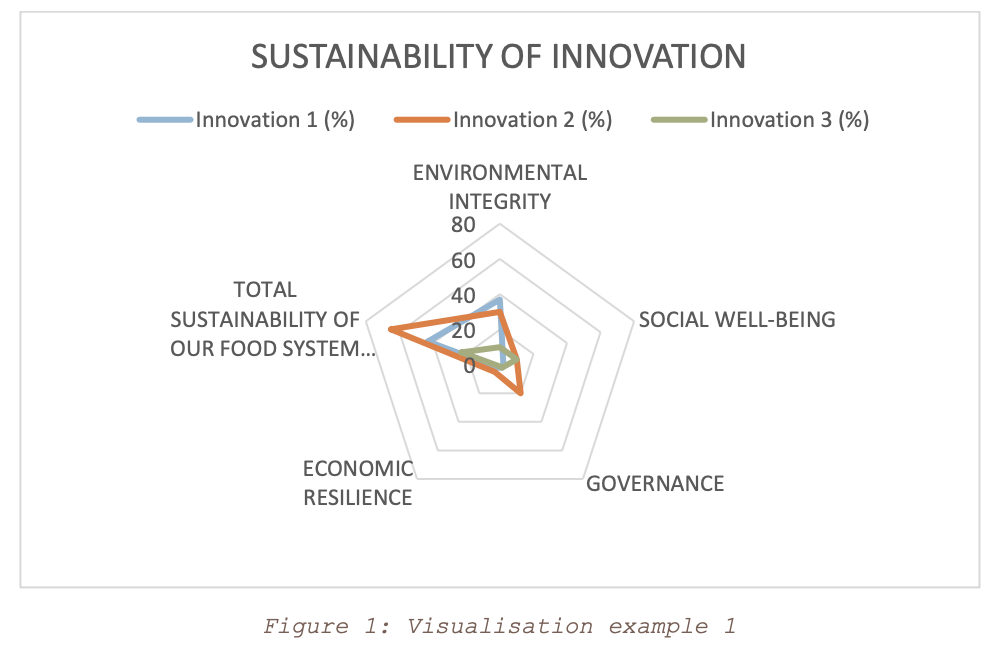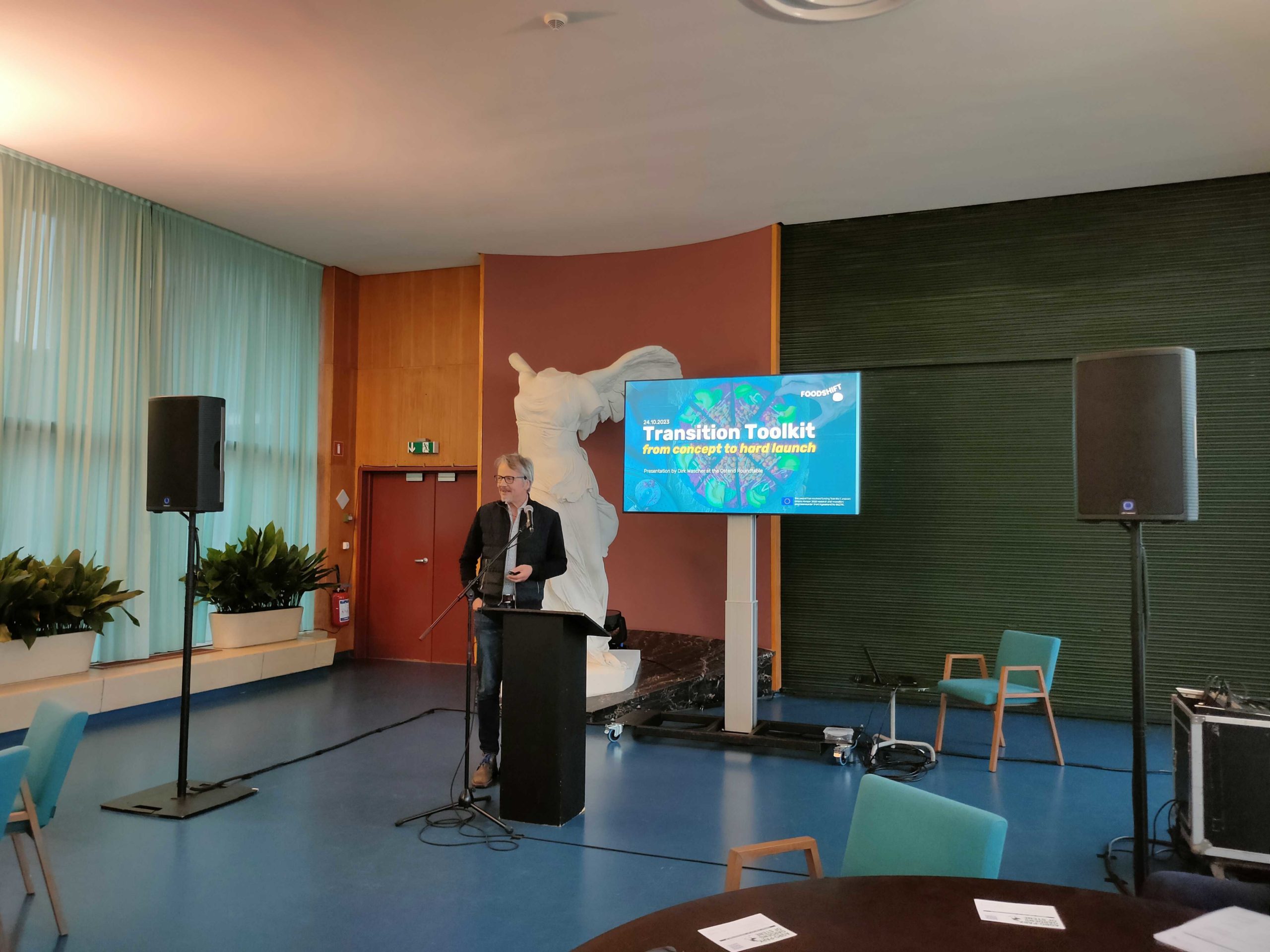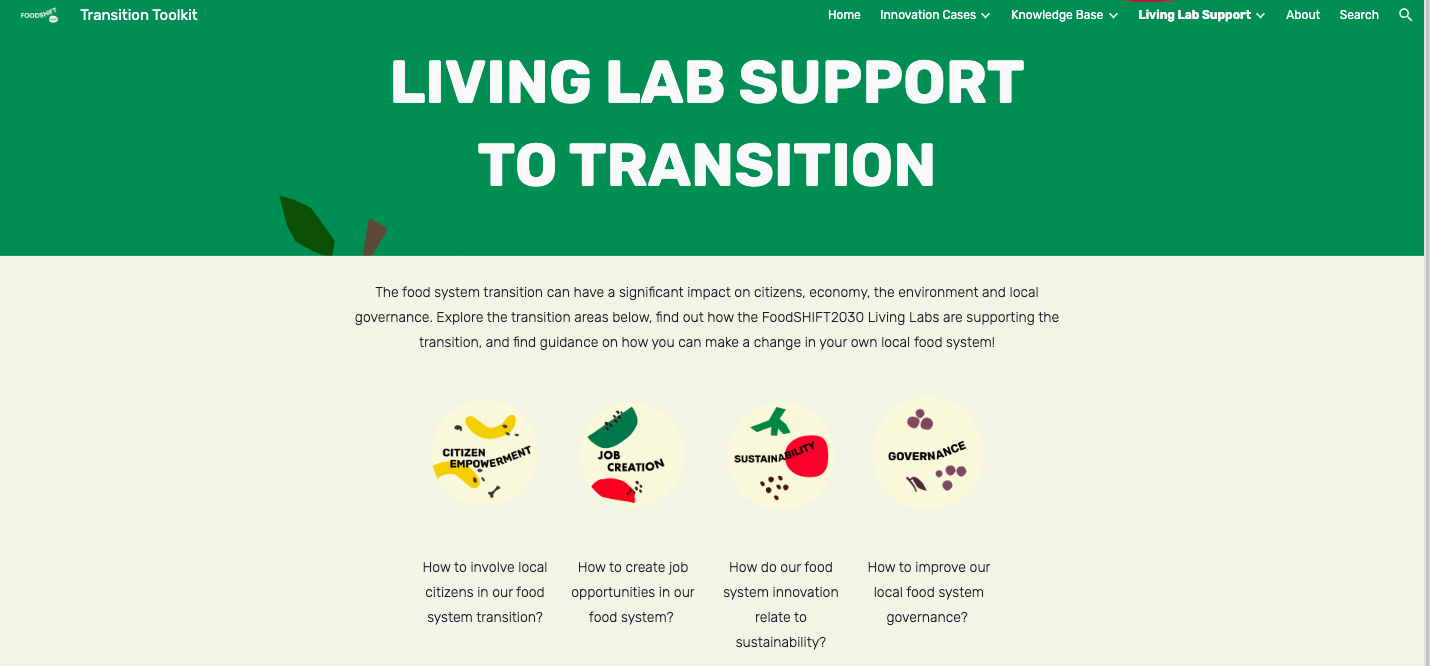Let us help you measure the sustainability of your food system
27 June 2023
Photo credits: Fab Lab Barcelona
Let us help you measure the sustainability of your food system
The FoodSHIFT 2030 Sustainability Scoring System (FSSS) is a new online tool which aims to help the different stakeholders apply sustainable food innovations to their food system.
Sustainability has become an increasingly important issue for the food system, as it not only concerns the environment, but it has also social and economic aspects. Many food system stakeholders are looking for ways to apply sustainable food innovations to their food system. This is where the FoodSHIFT 2030 Sustainability Scoring System (FSSS) comes in.
FSSS is prepared to be a simple, user friendly, online tool which aims to enable food system stakeholders around the world to assess the impacts of different food system innovations. This article discusses what FSSS aims at, how it will work, who can use it, who developed it, and how it was established. The full deliverable D6.3 is available for download here or accessible as well in the resource section.
FSSS, is developed for communication and demonstration reasons, and will be available soon through the FoodSHIFT website and the FoodSHIFT transition toolkit. In particular, FSSS:
- will demonstrate to the different stakeholders the multiple benefits they can have, when applying sustainable food-related innovations in their food system.
- provides ideas to its users on innovations they can apply, and combine, in their food system by comparing sustainable benefits and having access to real cases.
- can help different stakeholders to develop their sustainability strategies and approaches, in line with their priorities and their different needs.
How does FSSS work?
?he user can select from a list of innovations, related to their interest, and see how these innovations can influence the sustainability dimensions (environmental, social, governance, and economic) of a food system. The innovations have already been rated by a dedicated team based on SDGs indicators before being uploaded to the platform for use.
Who performs the scoring?
Prior to their uploading on the platform for use, the innovations have been already rated, regarding their contribution to the sustainability of a food system, based on SDGs indicators, by a dedicated team of experts who have been carefully selected by the FoodSHIFT 2030 team.
Who can use FSSS?
The Food Sustainability Scoring System (FSSS) is an innovative tool designed to promote sustainability throughout the entire food value chain. Its aim is to provide practical and actionable solutions to a wide range of stakeholders, including citizens, schools, local authorities, food processors, service industry, and agricultural producers.
FSSS targets the following stakeholders:
- For educational and research institutions, FSSS provides examples of sustainable food innovations that can be implemented in their establishments. This can be used for both practical purposes, such as reducing food waste in school kitchens, and educational reasons, such as developing school gardens.
- Local authorities can also benefit from FSSS by identifying sustainable food strategies and increasing food-related sustainable actions in their cities. This can help them plan and implement more carefully their sustainable food policies.
- Food processors, such as food processing industries, can use FSSS to generate profits while benefiting the environment. By applying sustainable food innovations in their businesses, they can communicate these benefits to customers and personnel.
- The service industry, which includes restaurants, hotels, canteens, and the hospitality sector, can also use FSSS to implement sustainable food practices. This can not only benefit their businesses but also the planet.
- Agricultural producers can use FSSS to positively impact the sustainability of the food system. By adopting innovative technologies and new business practices, they can interact with other value chain players and increase the overall sustainability of the food system.
Lastly, citizens are key target groups as they are both consumers and influencers of the food system. Educating citizens is an important factor for success in creating sustainable food value chains, and FSSS can demonstrate how their actions can positively influence the system.
In conclusion, FSSS is a powerful tool that can be used by a wide range of stakeholders to promote sustainable food practices. Its potential to positively impact the entire food value chain makes it an essential resource for creating a more sustainable future.
Overall, the FSSS is a valuable tool for promoting sustainable practices in the food sector, and its comprehensive approach ensures that all stakeholders are included in the process of improving food sustainability.
Who prepared FSSS?
The methodology for the FSSS was prepared by DRAXIS Environmental S.A., a leader in Work Package 6 (WP6) of the FoodSHIFT project, with support from UCPH and SUSMETRO. Once the FoodSHIFT project is completed, the FSSS will be accessible through the FoodSHIFT transition toolkit (lead by SUSMETRO), and the list of FSSS innovations is aimed to continue to be enriched and after the end of the FoodSHIFT 2030 project.
Selecting FoodSHIFT2030 SSS innovations
The research team, after conducting appropriate research, agreed that the most appropriate system to assess the selected food system innovations, and to measure their impacts based on the SDGs principles, is the recognized system of SAFA (Sustainability Assessment of Food and Agriculture Systems – FAO)
Categories of FSSS innovations
The innovations were separated in the following categories:
- Product – Innovations in this category address new or updated products, including quality, safety and market impact.
- Process – These innovations are relevant to new technologies for processing, logistical improvements, infrastructure and new/improved services.
- Social – Innovations in this category are relevant to changes in behavior (e.g., consumers/citizens), development of new relationships and inclusiveness.
- Governance – The innovations address policy developments, including food planning, subsidies, taxing, certificates & labelling.
Scoring
The scoring of the innovations performed in FSSS does not relate to rating the different innovations regarding which is better or worse. It rather aims, through this process, to present the character of an innovation, examining the benefits that it brings to a food system. The assessment of the sustainability of innovations will be qualitative, based on the opinion from experienced experts from different related disciplines in the food system.

Example of sustainability scoring visualisation
Do you want to be the first to know when FSSS goes live? Then sign up to our newsletter or reach out to Aida at [email protected]




